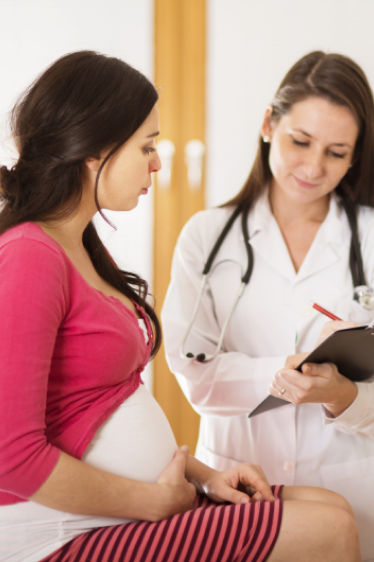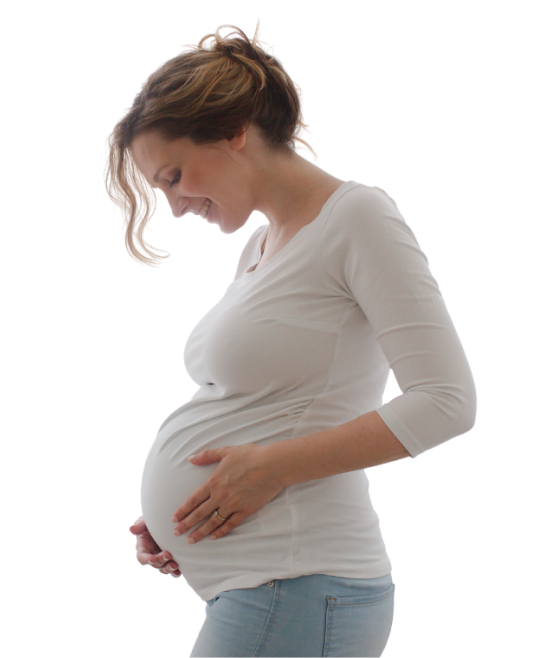Sage’s Fertility Program combines individualized bloodwork, naturopathic treatments and acupuncture in a holistic approach.
The unique needs of each partner are addressed to optimize reproductive health.
Download our free guide to optimize your fertility through nutrition, supplements, and lifestyle.

By using the best evidence-based practices, our program can increase the chances of successful conception, while providing much needed support on the journey to parenthood.

Program Components:
A follow-up appointment is set up with your ND to review the bloodwork results in detail. After identifying specific fertility-related issues, your ND will guide you through a treatment plan, including:
- Herbal medicine, vitamins and supplements tailored to address hormonal imbalances and other health concerns affecting fertility.
- Dietary recommendations that are designed to support reproductive health by optimising nutrient intake.
- Lifestyle modifications to improve overall well-being and enhance fertility outcomes.
Throughout the program, regular acupuncture sessions are administered by licensed acupuncturists with expertise in fertility support. Sessions are adjusted based on the individual's progress and treatment plan. During the sessions:
- Acupuncture points are specifically and individually targeted for reproductive health and stress reduction.
- Improved blood flow to the reproductive organs promotes relaxation and enhances the body's natural fertility response.
Mindfulness and meditation practices reduce stress and anxiety, which can impact fertility. The techniques used may include:
- Guided visualisation to foster a positive mindset and motivation on the fertility journey.
- Counselling to address the emotional aspects of infertility and enhance overall well-being.
Throughout the program, regular follow-up consultations are scheduled to assess the effectiveness of the treatment plan. This entails:
- Continuous monitoring of bloodwork to track changes in hormonal levels and reproductive markers.
- Treatment adjustments based on individual response and progress, ensuring a tailored approach.
By addressing the unique needs of participants, Sage’s Fertility Program optimizes reproductive health, balances hormones, reduces stress, and improves overall well-being, thereby increasing the chances of successful conception.
The Role of Naturopathic Medicine
Naturopathic medicine plays a multifaceted role in supporting fertility. It addresses underlying factors that can impact reproductive health.

Preconception Care
Naturopathic medicine focuses on optimising health before conception. This involves preparing the body for pregnancy through targeted interventions that improve fertility, support egg and sperm health and create a favourable environment for a healthy pregnancy.

Hormonal Balance
By recognising the importance of hormonal balance in fertility, practitioners use a combination of herbal remedies, nutritional supplements and dietary adjustments to regulate hormone levels.

Nutritional Guidance
Proper nutrition is essential for reproduction. Personalised dietary recommendations ensure that an individual receives the necessary nutrients, vitamins and minerals to support fertility. A balanced diet can help improve egg and sperm quality, hormone regulation and overall reproductive functioning.

Stress Reduction
Since chronic stress can disrupt hormonal balance and negatively impact fertility, naturopathic medicine emphasises stress-reducing techniques like mindfulness, meditation, yoga and relaxation exercises. These techniques promote emotional well-being, creating a more supportive environment for conception.

Herbal Medicine and Supplements
Specific herbal remedies and supplements known for their potential to enhance reproductive health and reverse any deficiencies may be prescribed. These natural interventions can help improve egg and sperm quality, regulate menstrual cycles and address specific fertility-related concerns.

Lifestyle Modifications
Lifestyle factors such as exercise, sleep and exposure to environmental toxins can influence fertility. Naturopathic medicine encourages healthy lifestyle modifications to support fertility, such as engaging in regular physical activity and reducing exposure to harmful chemicals.

Acupuncture and Traditional Practices
While distinct from naturopathic medicine, acupuncture is often integrated into naturopathic fertility support. Acupuncture can help regulate energy flow (qi), improve blood circulation, reduce stress and enhance reproductive health. With our program, you can choose whether you would like to incorporate acupuncture with your ND or with one of our acupuncturists.

Individualised Approach
Naturopathic medicine emphasises personalised care. NDs take into account each individual's unique health history, genetics, lifestyle and specific fertility challenges to create tailored treatment plans that address the root causes of fertility issues.

Collaboration with Conventional Medicine
NDs often work alongside reproductive specialists and conventional medical treatments. Naturopathic medicine provides complementary support to conventional fertility treatments like IVF, IUI, and fertility medications, potentially enhancing the outcomes of these interventions.
Lab Investigations
Laboratory investigations play a crucial role in identifying underlying factors that may be affecting fertility and guiding our personalised treatment plans.
Our team of naturopathic physicians and nurse practitioners utilise advanced laboratory testing to gain deeper insight into participants' health status and fertility-related concerns. The integration of lab work enhances the precision and effectiveness of our approach, allowing us to tailor treatments specifically to the individual's needs.
The following are the key aspects of how lab work is incorporated into the program:
- A thorough hormonal assessment is conducted to evaluate levels of reproductive hormones such as estrogen, progesterone, testosterone, luteinising hormone (LH) and follicle-stimulating hormone (FSH).
- This panel helps identify hormonal imbalances contributing to fertility challenges and guides the formulation of natural treatment strategies to restore hormonal harmony.
- Throughout the program, follow-up lab work is scheduled to track changes in hormonal levels, reproductive markers and overall health.
- The data helps our practitioners adjust treatment plans as needed, ensuring continuous improvement and optimal outcomes.
Integrating laboratory investigations in Sage’s Fertility Program guides our naturopathic and acupuncture interventions accurately. This evidence-based testing, combined with personalised treatments, aims to optimise fertility, enhance overall reproductive health and support individuals on their journey towards parenthood.
The Role of Acupuncture
Acupuncture has gained attention as a complementary therapy for fertility. Studies suggest potential benefits in improving fertility outcomes. Acupuncture is best used in conjunction with other fertility treatments and lifestyle changes. Here is an overview of the evidence supporting the use of acupuncture to treat fertility:
Regulation of Hormones
Acupuncture may influence the hypothalamic-pituitary-ovarian axis, which plays a central role in regulating reproductive hormones. Some studies suggest that acupuncture could help regulate menstrual cycles, enhance ovulation and balance hormone levels.
Support for Assisted Reproductive Techniques (ART)
Acupuncture is commonly used alongside procedures such as in vitro fertilisation (IVF) and intrauterine insemination (IUI). Acupuncture before and after embryo transfer during IVF may improve pregnancy rates. Acupuncture is believed to help by reducing uterine contractions, promoting embryo implantation and enhancing the overall success of ART.
Improved Blood Flow
Acupuncture is believed to promote better blood circulation, which can enhance blood flow to the reproductive organs. Improved blood flow may create a more conducive environment for egg maturation, implantation and overall reproductive health.
Endometrial Receptivity
Acupuncture may influence endometrial receptivity, potentially creating a more favourable environment for embryo implantation.
Stress Reduction
Stress and anxiety can negatively impact fertility. Acupuncture is thought to stimulate the release of endorphins and promote relaxation, potentially improving the body's response to fertility treatments.
Positive Psychological Effects
Going through fertility challenges can lead to emotional stress and anxiety. Acupuncture sessions may provide emotional support and relaxation, contributing to a positive mental outlook during the fertility journey.
Enhanced Egg Quality and Sperm Health
Some studies suggest that acupuncture may improve egg quality and sperm health by supporting cellular function and reducing oxidative stress, which can contribute to healthier gametes.
Research and Clinical Studies
The overall body of evidence when it comes to acupuncture is limited by methodological issues such as small sample sizes and variations in treatment protocols. However, there are studies that show promising results in terms of improved pregnancy rates and live birth rates for couples undergoing fertility treatments.

